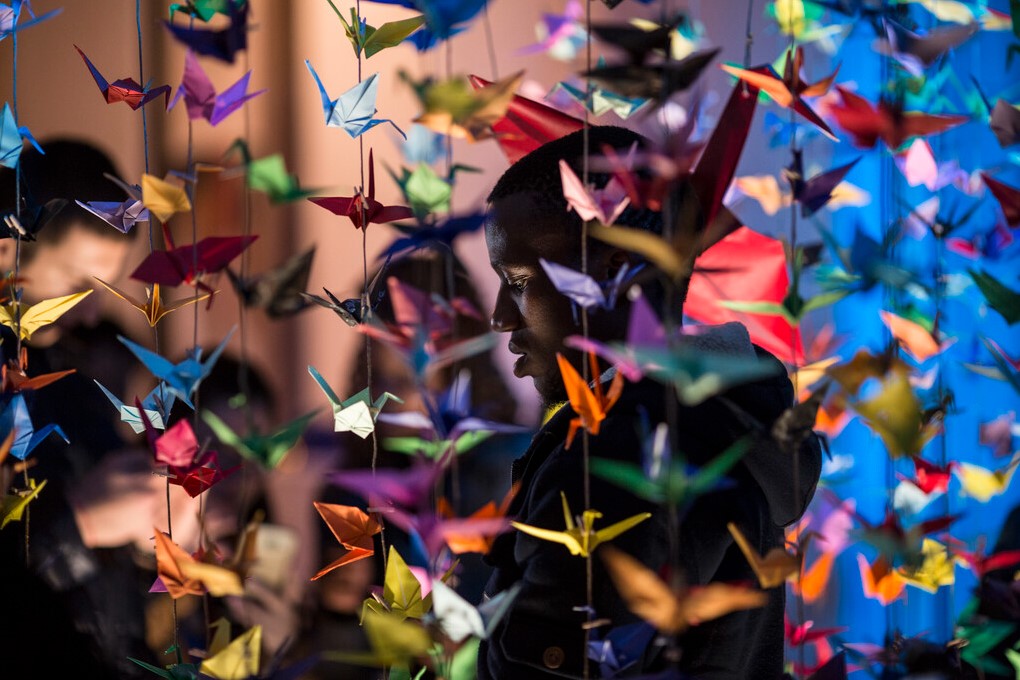COP26 and the Cultural Relations of Climate Change

A blog post by Dr Neil Crawford from the School of Geography, and Dr Michael Mikulewicz of Glasgow Caledonian University.
The global climate emergency is a crisis of culture. While the impacts of climate change can be destructive of cultural heritage in both its material and non-material forms, they also illustrate a failure in cultural relations, highlighting our chronic inability to work together to address the emergency at a global level. With less than a week until the 2021 United Nations Climate Change Conference (COP26) in Glasgow, we call for the foregrounding of culture and creative responses in the fight against climate change. We look at the climate emergency from the vantage of cultural relations, which, while lacking a singular definition, can be understood as “interventions in foreign cultural arenas with the aim of enhancing intercultural dialogue and bringing about mutual benefits connected to security, stability and prosperity”.
Intercultural dialogue and shared environmental and social values are needed to address the potentially irreversible changes foretold in the Intergovernmental Panel on Climate Change (IPCC) 2018 1.5°C Report. This accounts for the increasing engagement of cultural organisations in climate-centred work. The British Council, for instance, has launched The Climate Connection, an initiative aimed at changing responses to the climate emergency that is centred on the organisation’s traditional areas of focus: education, arts and culture, and English language learning. In late 2020, we had the pleasure of editing a Special Edition of essays, commissioned by the Council, on the cultural relations of climate change.
The Special Edition discusses the potential for cultural relations to address the seemingly intractable global impasse on the climate emergency. The six essays tackle varied topics, including the Youth Strikes for Climate as a cultural exchange and collaborative text, critiques of the dominant fossil fuel culture (rather than just economy), and the politics of climate knowledge production on the Internet.
Cultural relations can positively contribute to the global struggle in addressing climate change, whether by promoting cross-cultural cooperation or by facilitating the exchange of different experiences of climate impacts across nations. However, it’s important to note that such relations should be reciprocal exchanges between equal partners, bearing in mind the myriad climate inequalities that exist internationally and sub-nationally. A cultural relations approach, guided by principles of trust, reciprocity, and equity (an approach embodied by climate justice), can act as a vehicle for sharing knowledge and experiences of climate impacts and injustices.

Glasgow will soon see the arrival of many public officials and diplomats. Just as significantly, COP26 will witness a blossoming of civil society on the streets and, more than ever before, on the internet. Organisations and groups such as 350.org, the Indigenous Climate Network, Climate Action Network, the Climate Justice Alliance, and Extinction Rebellion will arrange marches, meetings, workshops, speeches and other fringe events complementary to the core activities taking place in the Green and Blue Zones of the Scottish Event Campus. They will bring together activists, policymakers, academics, business leaders and other members of the public. The sheer diversity of individuals, coming together from around the world to participate in these events, will be in itself a wonderful manifestation of cultural relations.
Last June’s G7 Summit failed to set the climate finance targets desperately needed by countries at the sharp end of climate impacts, despite the group’s leaders reaffirming their commitment to reducing global warming. We place a lack of international solidarity and a global ethic of care for our planet - values that, in our view, could be cultivated through closer cultural relations and exchanges between nations - at the heart of this failure. As is usually the case, the key decisions on our shared future will be made in the official COP negotiation rooms, apart from the vibrant cultural exchanges taking place between different people and cultures in Glasgow and across the globe in the first two weeks of November. We see such separation as unnecessary, a missed opportunity to foster the international solidarity and intercultural understanding so urgently needed at this critical moment. We therefore call for a more inclusive and diverse global climate governance, rooted in equitable cultural relations and exchanges between the world’s nations.
The Climate Connection Cultural Relations Collection Special Edition features 6 essays on the cultural relations and climate change and is part of The Climate Connection initiative from the British Council.
